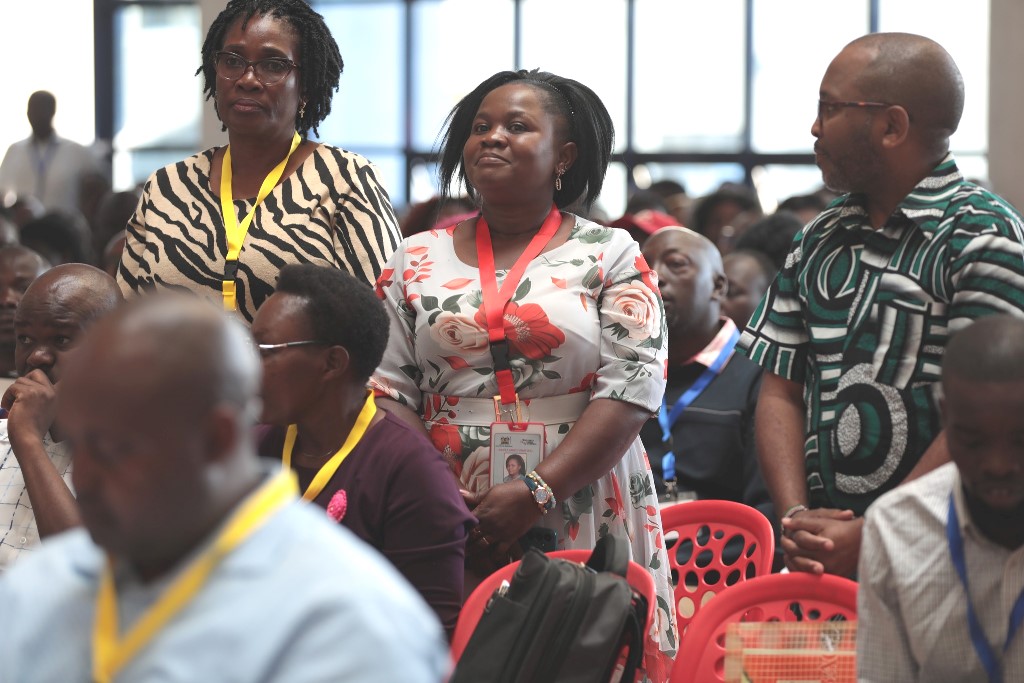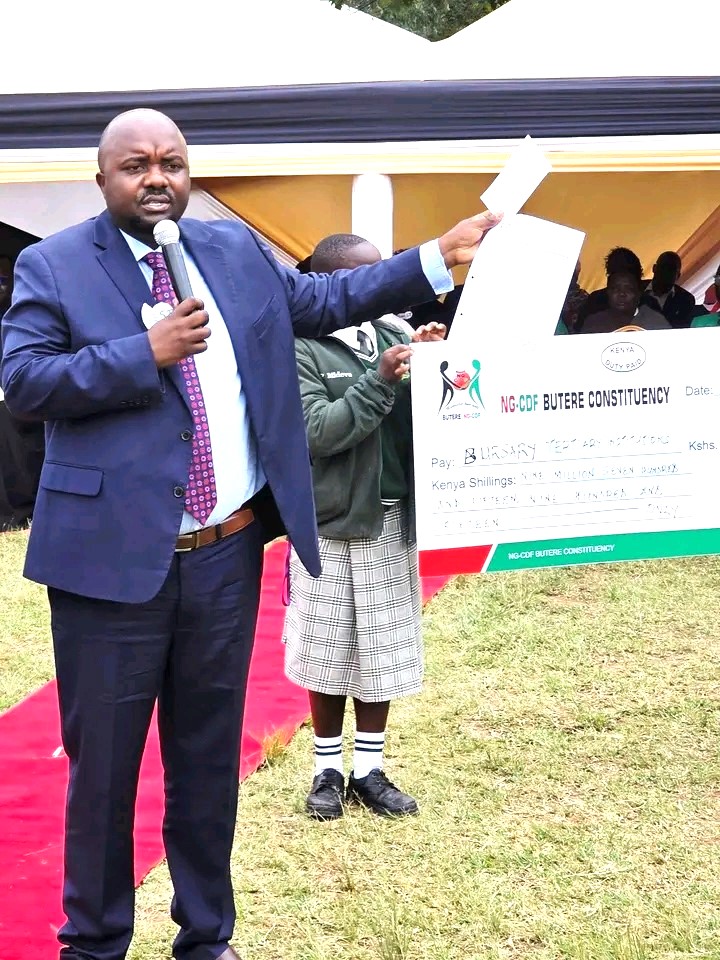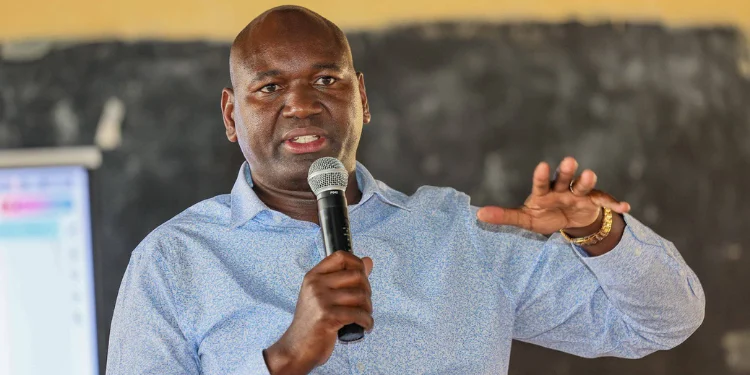The regional workshops for the music festival trainers concluded this weekend. Trainers will hit the road running as they meticulously prepare their students for elocution and dances for the Kenya Music Festivals slated for term two of the school calendar. However, there is an area that is always discouraging—adjudication. Adjudicators disparage participants, thereby discouraging them from future participation. That needs to be checked going forward.
Adjudication plays a vital role in the development of performers, serving as a bridge between performance and improvement. It provides constructive feedback that helps participants refine their skills and understanding. The process is crucial for maintaining a balance between fairness and encouragement, ensuring that participants learn from their performances while being motivated to grow.
An adjudicator takes on multiple responsibilities, contributing significantly to the success of any festival or competition. These include offering constructive assessment, timely feedback, teaching, entertaining, and creating a positive experience. Constructive assessment involves providing clear, educational evaluations that foster growth.
Timely feedback is essential, as performers can act on the insights while the experience is still fresh in their minds. An adjudicator also serves as an instructor, offering teachable moments that can be valuable long after the performance. At the same time, the event should remain engaging and lively, ensuring participants and audiences enjoy the experience. Above all, a positive experience must be created for every participant, regardless of their success in the competition.
Effective adjudication is grounded in several principles. Setting the right tone from the beginning is critical. Adjudicators should emphasize the subjectivity of their assessments and focus on providing feedback over simply assigning scores. It’s essential to highlight important aspects such as stage presence and etiquette while keeping the reports concise.
Maintaining a positive atmosphere throughout the event encourages performers to do their best, while constructive language fosters improvement. Embarrassing or humiliating performers should be avoided, and instead, ways to enhance their skills should be emphasized. Professionalism is crucial in this context. Adjudicators should avoid a condescending attitude, work collaboratively with performers to promote improvement and ensure punctuality in their schedules.
Performance anxiety is a common issue among performers, and adjudicators can help alleviate this stress. Reassuring performers about the naturalness of stage fright and providing visualization techniques to calm nerves are essential. Allowing hall tests before performances and offering alternatives if a performer struggles are additional steps that can ease anxiety. Criticism, when given, should always be constructive. Adjudicators should expect to receive feedback on their own performance and must deliver tactful suggestions that provide solutions rather than simply pointing out problems.

Keeping the event engaging is also important. The focus should always be on the performers, and humour, when used appropriately, can help lighten the atmosphere and create a supportive environment. The adjudication process should stay organized and efficient to avoid delays or disruptions. Planning verbal feedback strategically, keeping track of scholarship recipients, and ensuring uninterrupted performances are all part of this responsibility. Fair and accurate judgment is paramount, with adjudicators needing to trust their first impressions, keep detailed notes for fair comparisons, and justify decisions based on musicality and other relevant criteria.
When giving feedback, it’s essential to be clear and constructive. Written evaluations should highlight strengths and improvement areas, helping performers understand where they excel and where they need to focus their efforts. Consistency and objectivity are equally important, with adjudicators using established rubrics and criteria to ensure fairness.
Being prepared and arriving on time also reflects professionalism, as does maintaining respect for all performers. Bias should never influence an adjudicator’s judgment; performances must be evaluated on their own merits, free from personal preferences or external factors. Staying focused and attentive during each performance is crucial to providing accurate assessments.

Suggestions for improvement should be growth-oriented, offering performers specific recommendations that will help them improve. Staying updated on adjudication standards, rubrics, and festival guidelines ensures that assessments are accurate and consistent across all performances. Confidentiality is another key factor; adjudication discussions and decisions must remain professional and discreet to maintain the integrity of the process.
On the other hand, there are clear actions that should be avoided. An adjudicator should never influence the ratings of other adjudicators nor allow personal biases or fatigue to affect their judgment. Fatigue, in particular, can lead to unfair evaluations if the adjudicator’s mindset becomes less impartial as the event progresses.
Additionally, soliciting students for private lessons or personal programs while serving as an adjudicator is unethical and should be avoided. Comparisons between students or ensembles that were not at the festival are also unfair and can skew the evaluation process. Feedback must never be overly harsh or vague; comments should always aim to be constructive, specific, and motivating.
Special considerations apply when adjudicating ensembles. Singling out individuals for mistakes should be avoided, and accompanists should not be judged. Feedback should focus on the overall performance rather than on individual errors unless specific instructions were part of the adjudication criteria.

It is important to provide detailed and helpful feedback that gives performers a clear path for improvement. For example, instead of vague comments such as “nice job” or “needs work,” adjudicators should offer specifics that explain what was done well and what needs improvement. Harsh or discouraging comments should be avoided, as they can demoralize performers rather than inspire them to improve. Feedback should always include actionable advice, such as suggesting using a metronome to improve rhythmic stability or recommending tuning exercises to address pitch issues.
Lastly, feedback should avoid slang or informal language, as this can undermine professionalism and fail to convey useful information. Comparisons between performances should not be made, and personal preferences should never influence an adjudicator’s evaluation. Incorrect or misleading feedback can confuse performers and hinder their progress, so adjudicators must always ensure their comments are factually accurate and clearly explained.
Feedback should be constructive and specific to improve the adjudication process. For example, rather than saying “dynamics were inconsistent,” an adjudicator could point out specific bars where dynamic changes could be more expressive. Similarly, suggesting that performers practice with a metronome to stabilize tempo issues is far more helpful than simply stating that the tempo was unsteady.
In conclusion, adjudication is about assigning scores and fostering performers’ growth, motivating them to improve, and ensuring they have a positive experience. Constructive feedback, professionalism, and fairness are the cornerstones of effective adjudication, ensuring that performers leave the stage with both the tools and the encouragement needed to excel in their future performances.
By Kamomoti wa Kiambati
Kamomoti teaches English and Literature in Gatundu North Sub county.
You can also follow our social media pages on Twitter: Education News KE and Facebook: Education News Newspaper for timely updates.
>>> Click here to stay up-to-date with trending regional stories
>>> Click here to read more informed opinions on the country’s education landscape






